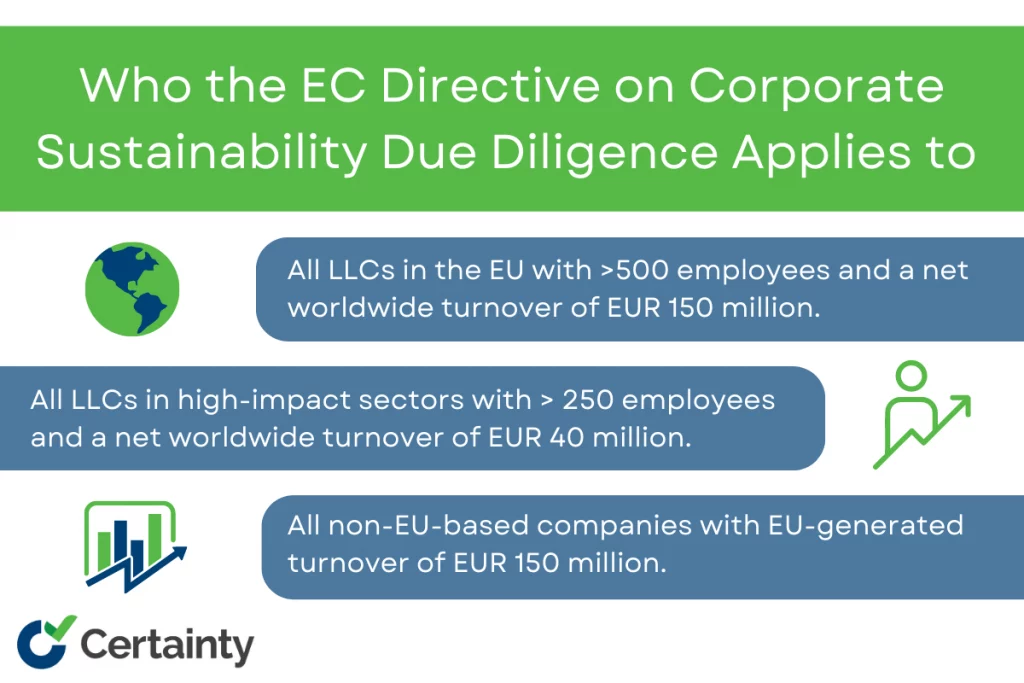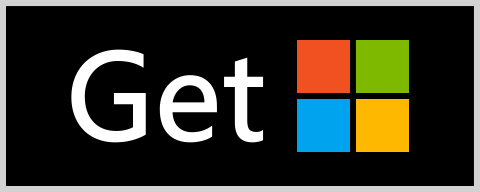What is the EC Draft Directive on Corporate Sustainability Due Diligence?
Proposed by the European Commission in February 2022, the EC Directive on Corporate Sustainability Due Diligence aims to force global brands to play a key role in building a “just and sustainable economy” through their compliance with rules that enforce the “respect of human rights and environment in global value chains”.
Unlike existing regulations that require corporations to comply with human rights and environmental standards in the jurisdiction in which they operate, this regulation will force companies to conduct human rights and environmental due diligence (HREDD) of their suppliers throughout their global supply chains.
Who will the EC Directive apply to?

The proposed Directive will apply to:
1. All limited liability companies in the European Union with more than 500 employees and a net worldwide turnover of EUR 150 million.
2. All limited liability companies operating in high-impact sectors with more than 250 employees and a net worldwide turnover of EUR 40 million.
3. All non-EU-based companies with EU-generated turnover of EUR 150 million.
It is estimated that approximately 13,000 EU companies and 4,000 non-EU companies will fall into these three groups and be bound by the HREDD requirements of the Directive.
What will be required of companies bound by the Draft Directive?
The Draft Directive defines standards for the human rights and environmental due diligence measures that companies must take to identify actual (and potential) adverse human rights and environmental impacts that arise from their own operations (or those of their subsidiaries) throughout their supply chain – globally.
The Draft Directive requires that companies must:
- Have policies that cover HREDD in their supply chains and those policies are updated annually.
- Assess the actual and potential adverse human rights and environmental impacts arising from their operations and the operations of their subsidiaries throughout their supply chains.
- Put measures in place to prevent potential adverse impacts and mitigate actual adverse human rights and environmental impacts throughout their supply chains.
- Have and maintain a procedure to enable those affected by adverse impacts (or potential impacts), to complain to companies responsible for those impacts.
- Annually assess the effectiveness of the HREDD policies and procedures.
- Publish (on their website) an annual statement that identifies the due diligence measures taken by the company during the previous calendar year.
What are the sanctions for non-compliance?
The Draft Directive includes provisions to impose sanctions for companies that do not comply with their obligations under the Directive and provides that directors can also be held responsible and accountable for their company’s HREDD policies, procedures, and programs.
The Draft Directive does not define sanctions explicitly, but it does stipulate that the Member States shall enforce sanctions for non-compliance and that those sanctions shall be ‘effective, proportionate and dissuasive’. Furthermore, sanctions can be financial in nature and can be based on the turnover of a non-compliant company.
The Draft Directive also includes provisions for civil liability when a company fails to meet its HREDD obligations. In such cases, and where non-compliance leads to damages (environmental, social, human rights, etc.) the company can be held liable for those damages and be required to compensate those affected accordingly.

30+ Audit and inspection checklists free for download.
When will the EC Draft Directive come into force?
The Draft Directive is now being presented to the European Parliament and Council for approval and once adopted, Member States of the EU will have two (2) years to transpose the Directive into national law.
As this regulation is still in draft form and yet to be enacted, it is likely to change as it goes through the approval process. However, given the intent of this regulation and the significant support it has received to date, it is fair to assume that the proposed Directive provides a very good idea of its potential scope and the nature of the obligations it will impose.
How can your company prepare for the EC Directive on Corporate Sustainability and Due Diligence?
Preparing for the EC Directive on Corporate Sustainability and Due Diligence, there are a number of steps that companies can now to be better prepared for the Directive when it comes into force.
These include:
1) Identify who your suppliers are and define the nature of their connection to your company. Are they direct or indirect suppliers? Tier 1, Tier 2, etc. Where are they located and where are they in your business’s value chain?
2) Create and integrate into your business’s governance planning processes, the HREDD policies, and procedures that will be required for compliance – (See Draft Directive Articles 5 – 10).
3) Define the human rights and environmental impact assessment checklist that you will use to benchmark how well – or poorly – your suppliers perform. See also our Supplier Social and Environmental Compliance Checklist.
4) Establish a program to regularly assess and report the human rights and environmental impacts of your suppliers.
5) Implement a program to document and manage the corrective actions that your business – and its suppliers – need to address to mitigate the impacts identified in your assessment process.
6) Create and implement a mechanism to manage complaints from those affected by impacts throughout your supply chain.
You may also be interested in:
The Supplier Compliance Audit: What it is (and Why You Need One)



